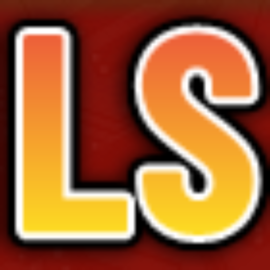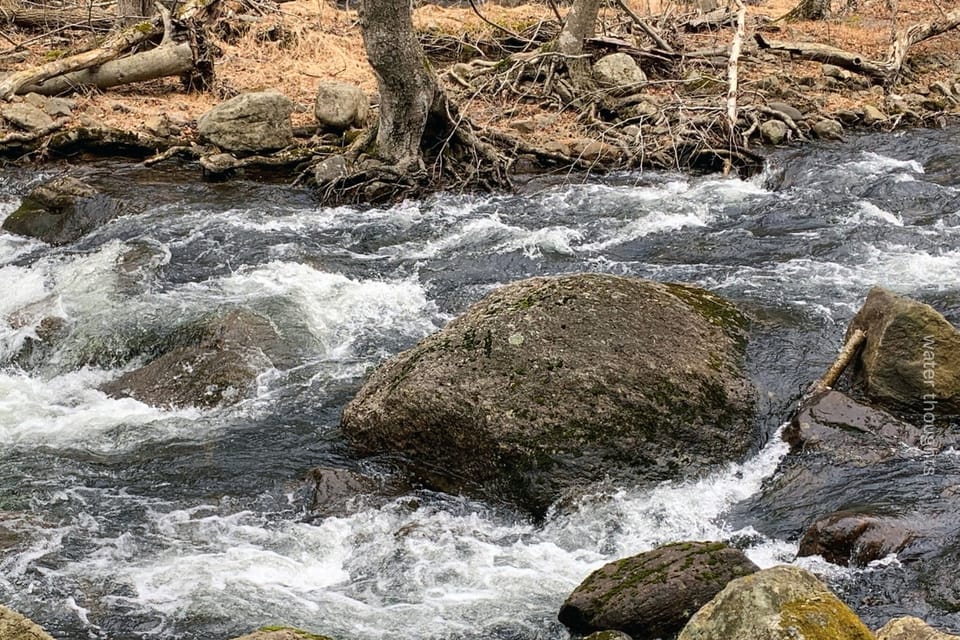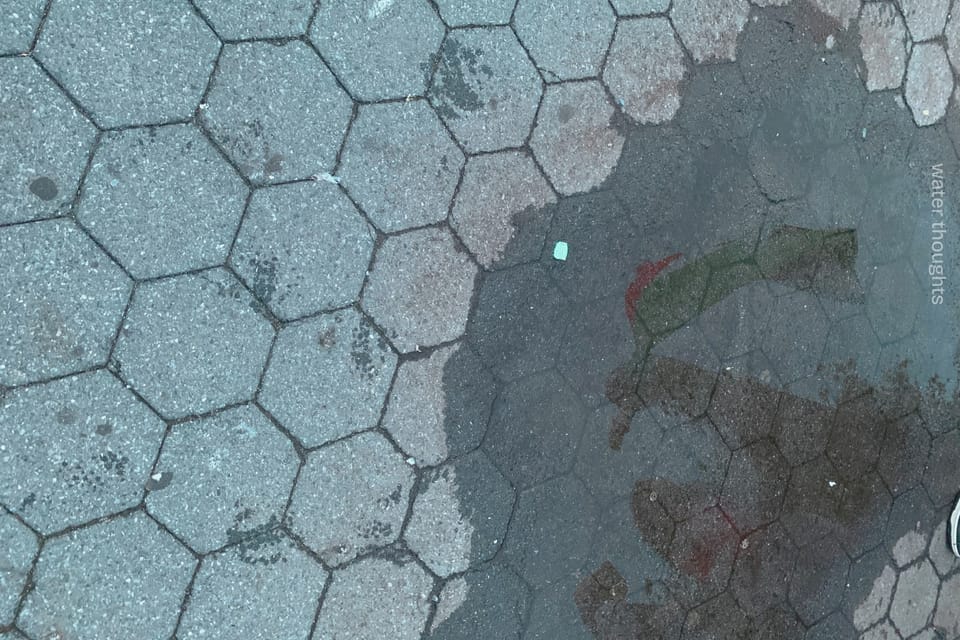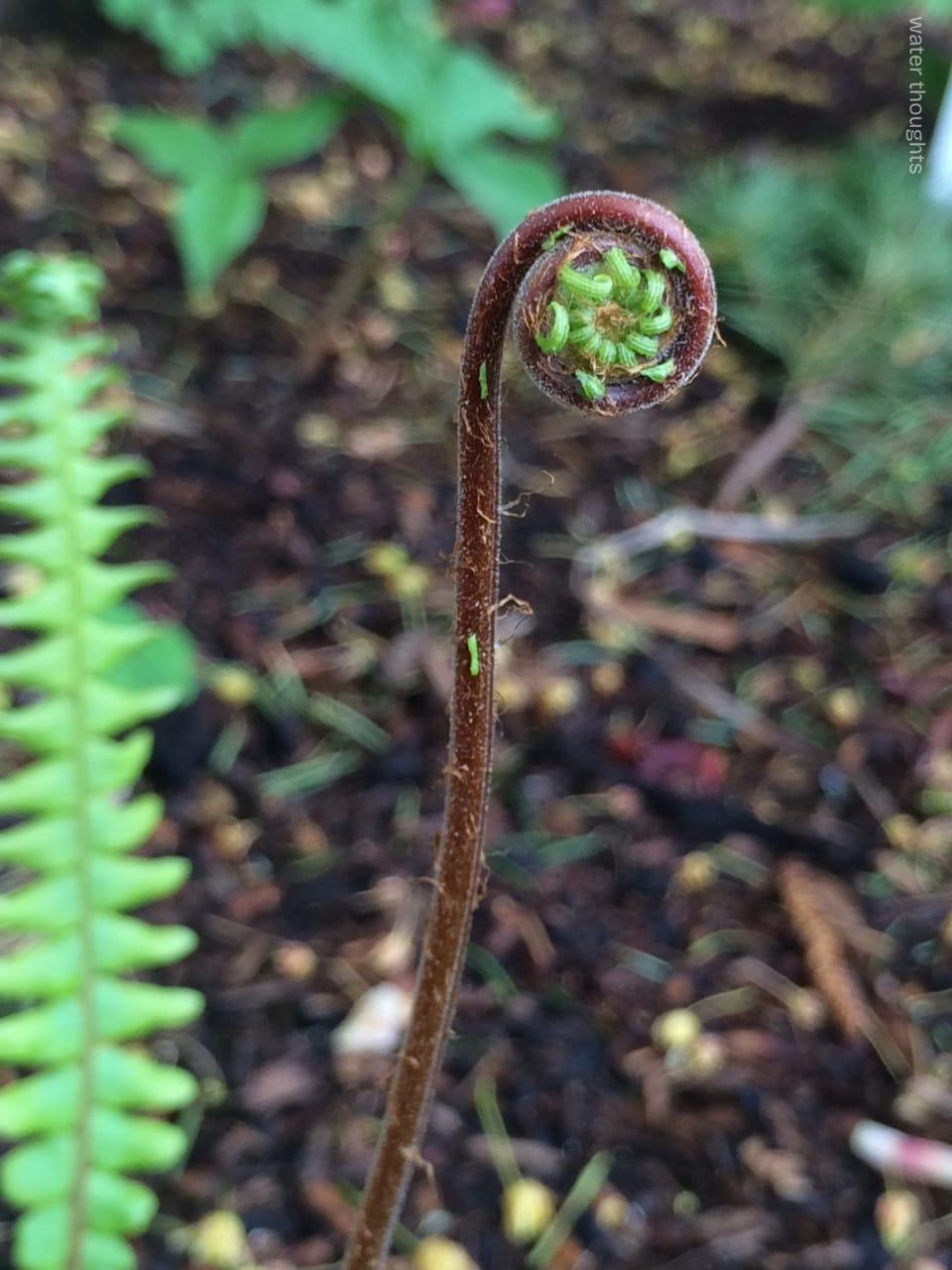writing about monsters when you don't have the words
I want to write about monsters. I still don't have the words. I start to write about this, sharing some of what I've previously written. But also, are there any words for the monsters of childhood?

I want to write about monsters. I still don't have the words. Are there any words really for the atrocities, the mass graves, the disabling, the exploitation, the starvation, the gaslighting, the lying, the unending list of harms committed, led, and supported by—impunity?
The noun, impunity, comes from the Latin roots im- ("not") plus poena ("punishment"), a root which has also produced the word pain. Impunity, then, is the freedom from punishment or pain. [1]
I've recently started learning Latin roots in my efforts to rebuild my ability to write. It isn't my go-to, but it has been helping me rebuild that part of my brain. Still, I wish I didn't understand what impunity means. I wish I didn't have a lifetime of understanding it.
"Freedom from punishment or pain"– I'm thinking about pain, who feels it, who is imagined to have more tolerance to it, and who feels they have a right to use punishment and pain to try to correct behavior, whether immigration, crimes of poverty, or fear-enabling indifference to the needs of others. I'll return again and again to these reflections.
But also, are there any words for the monsters of childhood? There are so many kinds of monsters in childhood—aren't there enough without continuously creating more???
I was thinking about this, and all who were enabling the genocide of Palestinians, when I wrote a poem on 11/2/2023 that I shared on Twitter/X, as well as my first post on Bluesky and IG, before I lost capacity for more than a year to post further on either platform. At the time, I signed it "🫶🏻 gaza", and that is still connected to it, and I've only given it a name since then.
radicals and their rootsi want to write about monsters and their enablers, uplifting & enabling genocide, and how many of us first learn about monsters as children by experience more than in books for many as our first radicalization, and how in community and solidarity together we grow freedom
🫶🏻 gaza
I was thinking about this too, when I started to write, in what I had previously published on January 14, only to unpublish it and try to find a way to share here. It was connected to anxiety, sources of anxiety, seeds of it, what I reference in the above poem, now narrating a bit in reverse of how I had previously written it. This post was still mostly complete before others, mostly written over a week ago, but still needing to understand the platform and what I needed to do to post.
before, or at the beginning..
This is still only the beginning of trying to start writing, and this is more from the first post. This part is connected to childhood monsters. I'm sharing it as I had written it, now a new share, within a share.
Start:
My anxiety is part of the turbulence. It can change and create change, repeatedly.
When I first started to write this post, I wasn’t certain if the ability to write could be sustained, and while I’m still not certain, I know a little more. I tried to re-write what felt rambling, but when that became much longer, and a different story than what I was trying to share here began to emerge, and I’ve now addressed circuitousness, I decided to copy the original text from this section from 6 days ago, which is connected to the next:
My anxiety is part of the turbulence.
But is it only my anxiety or the structure of the world or something else entirely?
Part of what has helped me write in the last week seems to be a possible breakthrough in my recovery. I’ll share more about what I mean by “recovery” in future posts, but like so many things that I’m never sure are due to me or to something else, even this one, which I’ve long felt had a physical connection that created a cognitive change, and I have evidence that suggests what I was thinking to be true, but what if is all in my head? Would it make a difference? [2]
I recently read Ring Shout, a novella by P. Djèlí Clark, my first read of the year, which I recommend. In the passage I share below, Maryse, a character in P. Djèlí Clark’s Ring Shout asks,
“Is this in my head? Or is it real?”
I appreciated this passage for many reasons, and the book as a whole, which also has connections to the poems I share in this post.
P. Djèlí Clark in Ring Shout:
“Interesting,” a voice comes.
I jump, turning to find Dr. Bisset, standing where he don’t belong.
“What you doing here?”
“Observing.”
“Is this in my head? Or is it real?”
He glances to me behind his blindfold. “Would it make a difference?”
I see he been around haints enough to take up their sideways talking. “Did they send me here?”
“There’s something here my lords cannot see. Something you hold deep. It intrigues them. And that is rare.”
End.
Get this book wherever you get your books.
Words to talk about monsters, so many kinds of monsters in childhood—those who cause the loss of innocence, who bomb children, who support putting children in jail, rather than almost any other possible option, who freeze, starve, kidnap from families, put in a kids jail, no, an adult jail, no family jail without family, no,...NO!! No to kids in jails, to people who steal innocence, to people who take lives, all using a lens of dehumanization and propaganda to induce fear.
For Tamir Rice, Ma'Khia Bryant, for children all over the world, we're done, no more, past done, we must stop the development of cop cities and the killing, starvation, deportation, and maiming of children and their families and friends. We must stop the imprisonment, solitary confinement, and torture of children. We must end the reasons and causes that children must work in artisanal mines in the Democratic Republic of the Congo to get cobalt for people who don't have to think about sending their kids to the mines because they themselves have become too disabled in a mine's collapse.
I wanted to share more, I have so much more, but that will be in subsequent posts. Until there are no more monsters who hold power over others, we must continue to confront the very idea that some children are considered terrorists and are threatened, killed, jailed, while others terrorize and are uplifted, celebrated, forgiven.
when I wanted to scream about monsters
The day after I posted the previous poem, on November 3, 2023, I shared another post on X/Twitter. It was in the form of a poem, and also reflection on a book I was reading. I'm sharing the full post below in this section.
Start:
I want to write about monsters and how they repeatedly bomb children, And tally them up as a number on TV where they call them terrorists, And the other monsters who cover for them and fund their genocide, And try to convince us that it is about self defense and national security, And not about self interest instead of collective good, And not about national interests instead of what is best for the world.🫶 Gaza
Last week, when trying to fall asleep, I read these lines in NK Jemisin’s short story “Walking Awake:
“All the monsters were right here. No need to go looking for more in space.”
I’ve wanted to share them, couldn’t get them out of my head, writing is hard, finding a way.
Read the short story “Walking Awake” by N. K. Jemisin at in Lightspeed Magazine. It is also included in How Long 'Til Black Future Month?.
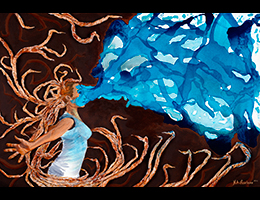
“Walking Awake” by N.K. Jemisin, published in June 2014 in Lightspeed Magazine (Issue 49). Art © 2014 Hillary Pearlman. The Master who came for Enri was wearing a relatively young body. Sadie guessed it was maybe fifty years old. It was healthy and in good condition, still handsome. (caption and alt text)
End.
As I become more comfortable with sharing, I want to be able to share who helped me along my own journey of thinking about monsters with power. Hint: the person is a Palestinian. Free Palestine, from occupation, with right of return, with sovereignty on their land, everyday.
when is the right time to talk about childhood monsters?
The poems I shared are connected to monsters of childhood of all types, those who steal from childhood, whether it is the introduction to one's own sexuality, the comfort of sleep, the safety of living, all of these together. Children, especially those who are Black, Indigenous, and/or part of the global majority, deserve so much better of this world, and we must be committed to changing it and addressing it. Sexual violence is part of almost any conflict, with rape often used as a weapon of war. But what also enables this sexual violence to happen, to persist?
I'll return to this, so many things I write that I cannot include. At this point, I'll only point to a book that helped me deal with my own history, Love WITH Accountability: Digging Up the Roots of Child Sexual Abuse by Aishah Shahidah Simmons. In the introduction to this anthology, Aishah Shahidah Simmons writes,
I believe the silence around child sexual abuse in the family plays a direct role in creating a culture of sexual violence in all other institutions—religious, academic, activist, political, and professional. We cannot and must not address rape (including campus rape) without also addressing child sexual abuse. For too many victim-survivors of adult rape, child sexual abuse is a precursor. Ending sexual violence starts with ending child sexual abuse, and ending child sexual abuse starts in the family, in religious institutions, schools, and other spaces in communities.
I'm thinking about how so many monsters were hidden, had impunity, were never punished, were never moved from hidden to known, people who hurt my friends, who hurt me, a pain that kept on hurting, that traveled into our adult lives, that disrupted relationships, decision-making, careers, lives. As Aishah Shahidah Simmons asks in Love WITH Accountability,
When is the right time to talk about child sexual abuse? Even in our heightened contemporary awareness about sexual violence, we still do not talk about child sexual abuse, especially when it happens in families. How does one initiate in public spaces the often-silenced dialogues about any form of sexual violence, most especially child sexual abuse? How does one begin the conversation in the midst of the justifiable righteous outrage about the rampant and virulent racialized violence perpetrated against diasporic Black, Indigenous, Latinx, Arab, and South Asian people, undocumented immigrants, Muslims, transgender, intersex, gender non-binary, physically and mentally disabled people, deaf and hard of hearing people, and other marginalized people?
I wanted to write about a friend, but my friend, if he were still alive, would understand that these questions are a good place to end.
books
At the end of each post, I will share books I referenced and recommend unless the post itself already contains recommendations with book covers or the book is not part of recommendations, but was related to a quote or passage I shared. Some books, I will touch on again, but in case that doesn't happen, I will try to include each.
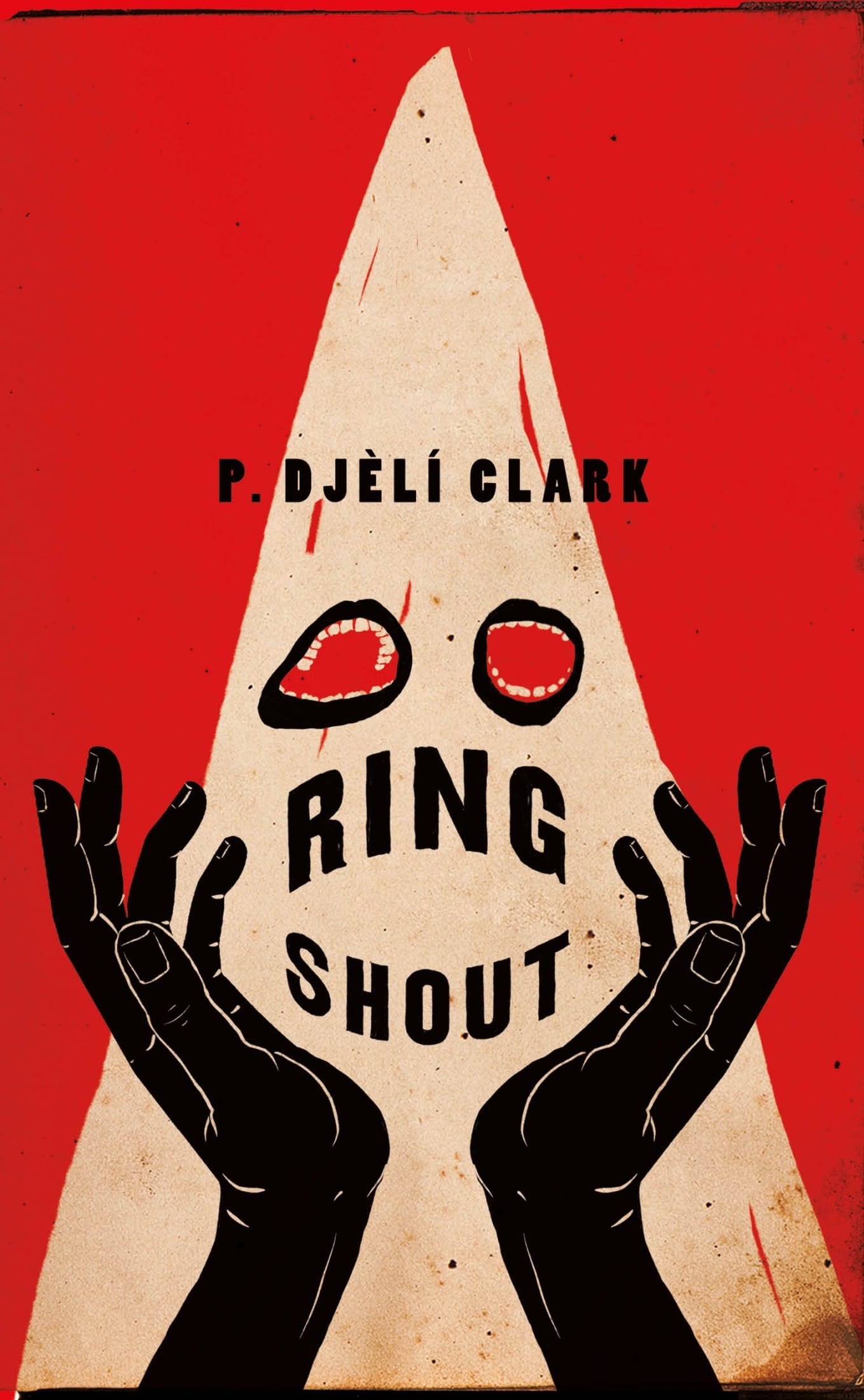
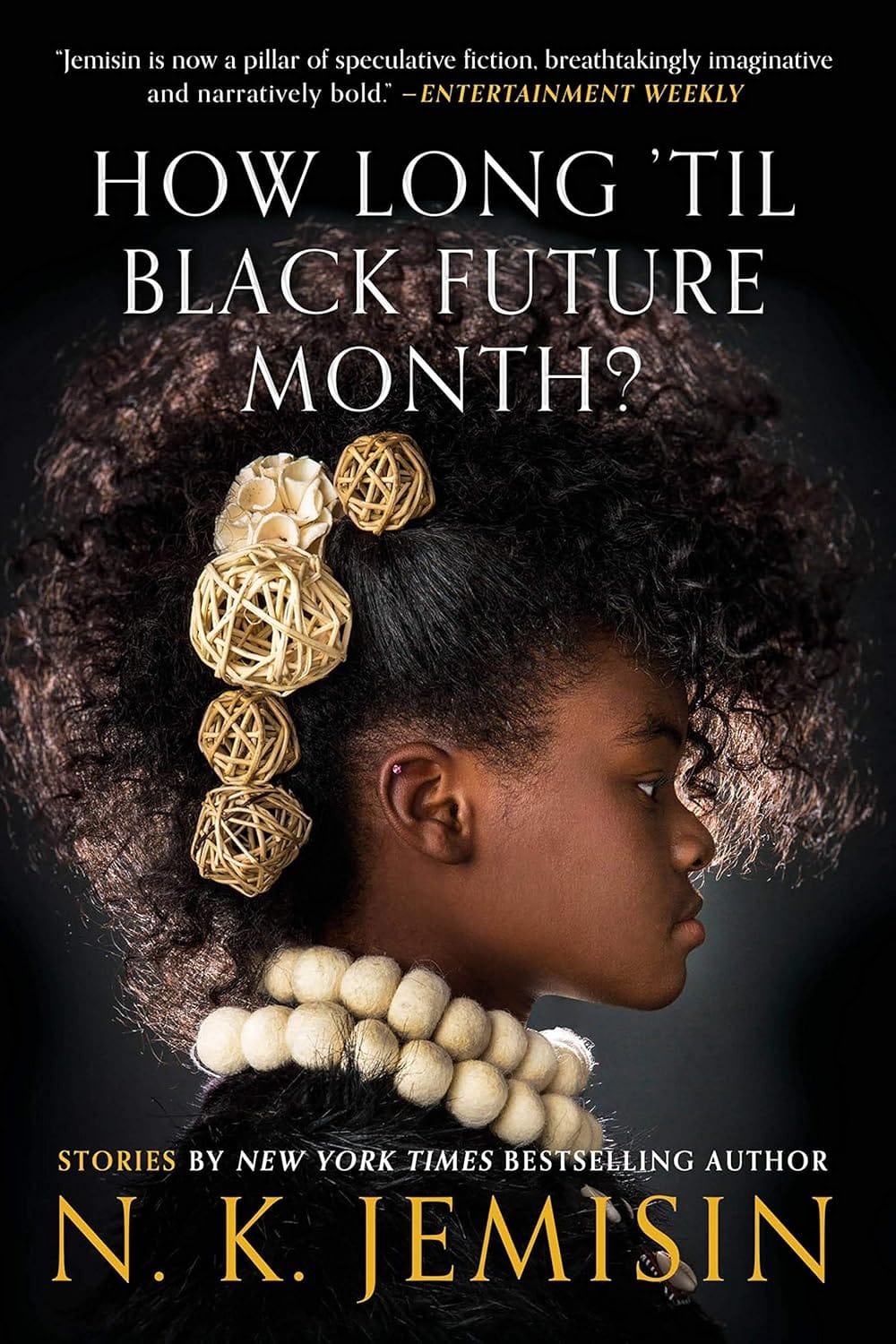
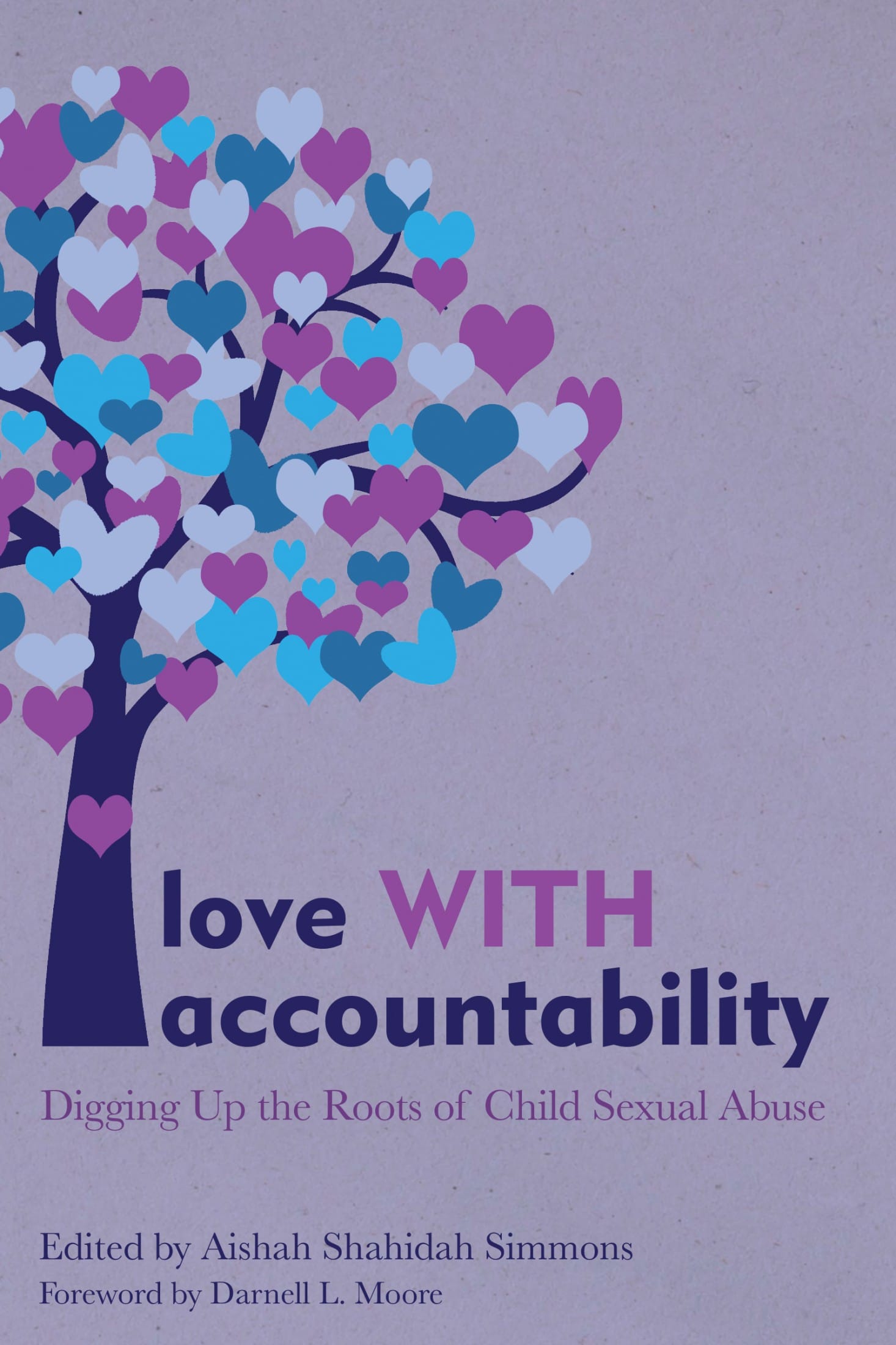
Ring Shout, Or Hunting Klu Kluxes in the End Times (2020), a book by P. Djèlí Clark, published by Tor Publishing Group, an imprint of Macmillan Publishers. Cover design and artwork by Henry Sene Yee. How Long 'Til Black Future Month? (2018), a book by N. K. Jemisin, published by Orbit, an imprint of Hachette Book Group. Love WITH Accountability: Digging Up the Roots of Child Sexual Abuse (2019), a book edited by Aishah Shahidah Simmons, foreword by Darnell L. Moore, published by AK Press. Cover illustration by Kathryn Bowser Graphic Design. Cover design by Morgan Buck.
Get any/all of these books wherever you get your books. Please support libraries however you can. Find out many ways to get involved in supporting libraries at Libraries for the People.
Thank you for reading.
notes
"Impunity." Vocabulary.com Dictionary, Vocabulary.com, https://www.vocabulary.com/dictionary/impunity. Accessed 28 Jan. 2025.↩︎
